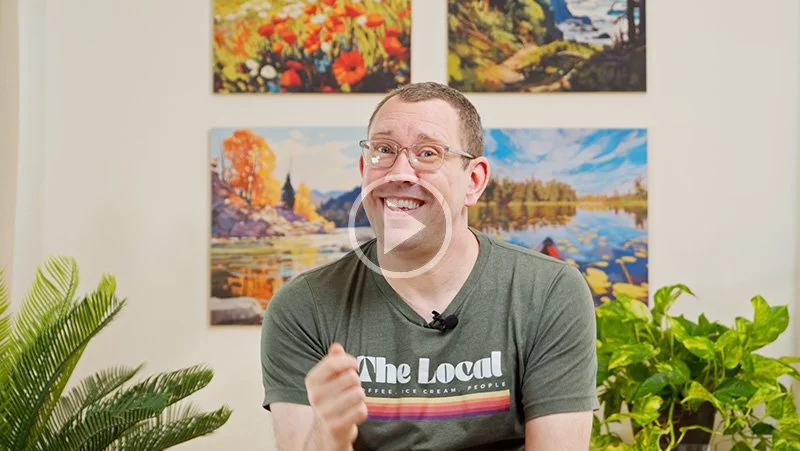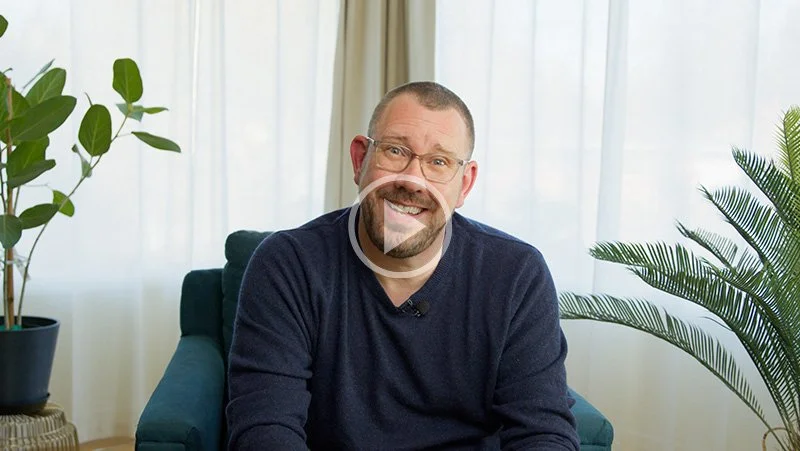Common Enemy Intimacy & Relating to Others Through Negativity
Welcome to the #culturedrop. Every Tuesday, Galen Emanuele emails tools to advance leadership skills, team culture, and personal growth. No spam, just great content. Sign up now to get it in your inbox.
Common enemy intimacy and connecting with other people in a negative way.
I have a story to share and a couple tips around this.
This story actually came from a situation and conversation that took place with my team. Back when the world was still open, we went to Disneyland together and this little interaction happened during that trip.
Here’s what happened:
Kari and Emilie on my team were at the store buying some snacks for everyone. While they were standing in front of the grapes, Kari was talking to Emilie about cotton candy grapes. She said something to the effect of, “I love these grapes, they're so amazing.” A woman who was close by (and not part of our party) overheard and piped up by saying, “Are you talking about those cotton candy grapes? I hate those grapes, they're terrible,” and then walked away.
Pretty awkward and weird, but it sparked a great conversation inside our team about how some people default to, or only know how to, connect and relate to other people in the world by expressing negativity.
It's a very interesting dynamic.
There's a lot of psychology to this, and the conversation we had reminded me of a video I had seen by Brené Brown where she talks about the concept of “common enemy intimacy,” or forming bonds with other human beings over hating the same things together. Here’s the clip where she talks very succinctly about this. I highly recommend you watch it, and to go find her entire 22 minute talk about the anatomy of trust. it’s absolutely exceptional.
So why are some people like this?
I believe at the root of it that it’s subconsciously seen as a safe, easy way to connect with someone else in method that requires no vulnerability at all.
“For people who have sensitive egos, or a hard time being vulnerable and opening up to other people, it can be a way to contribute or build connection that involves very little risk.”
For people who have sensitive egos, or a hard time being vulnerable and opening up to other people, it can be a way to contribute or build connection that involves very little risk.
It's not a vulnerable place to hate something. You’re never vulnerable if all you do is espouse your hate for things in the world. “I hate this, I don't like that, this person sucks.” Someone can disagree with you and it makes no difference, you won’t take that personally because you’re not making yourself vulnerable in any way.
Likewise, for someone with a sensitive ego, it’s a much more vulnerable space to say “Hey, I really like this band,” or, “I saw this movie and I really loved it, has anyone seen it yet?” If someone were to respond by insulting that band or movie it would feel like a personal attack, or could cause hurt feelings or shame, etc. to a person who has a hard time being vulnerable.
I don’t think that people who show up this way and connect with others like this are conscious of it. It's a lack of self-awareness, emotional intelligence, and of understanding their impact on others. It’s also rooted in the desire for self protection which can stem from any number of lived experiences.
This dynamic is something to be aware of and notice in yourself and others.
1. Ask yourself: Are you that kind of person?
It's important for you as a human being, both at work and in the rest of your life to consider if you are that kind of person.
Are you the kind of person who defaults to relating and forming connections with other people by contributing or bringing up something negative? Are you quick to point out something critical about someone or something else, like someone’s appearance or how much you can’t stand something?
“If you are that kind of person, be aware of that and consider making some adjustments or searching yourself for why that may be comfortable for you.”
Take a good look and soul searching of your interactions. If you are that kind of person, be aware of that and consider making some adjustments or searching yourself for why that may be comfortable for you. It's a bummer to do, it's kind of rude, and the connections that you will end up forming with other people will not be high caliber or meaningful ones.
You can miss out on a lot of great people in your life who don’t resonate with that kind of behavior.
2. Once you’re aware of it, you can take it in stride when you see or experience it.
Once you become aware of other people navigating the world like that, you can acquire a bird's-eye view around it, and take those interactions and responses less personally. It makes you aware that their reaction is not about you, or often even the topic of discussion.
What you can start to see is that in many instances that person is trying to connect with you, they just don’t know any healthy ways to do that. You can increase your empathy for other people and see that behavior for what it is, and not as a reflection of you.
When you recognize that, you don't have to call those people out, or make them look bad or feel terrible. Maybe they are a coworker, or a friend or family member. Perhaps a more productive way of interacting with them and a positive challenge for yourself is to redirect them and find things that they love in an attempt to bring out a more positive side of them.
“Self awareness, empathy, discretion. Never a bad combo.”
Maybe that’s a losing battle or more effort than it’s worth. The best response instead may just be “Okay,” and the discretion to avoid jumping into the arena to engage with them in negativity.
Self awareness, empathy, discretion. Never a bad combo, especially around family and the holidays. Happy Thxgiving everyone :)
Want more?
This article was created by Galen Emanuele for the #culturedrop. Free leadership and team culture content in less than 5 minutes a week. Check out the rest of this month's content and subscribe to the Culture Drop at https://bit.ly/culturedrop







